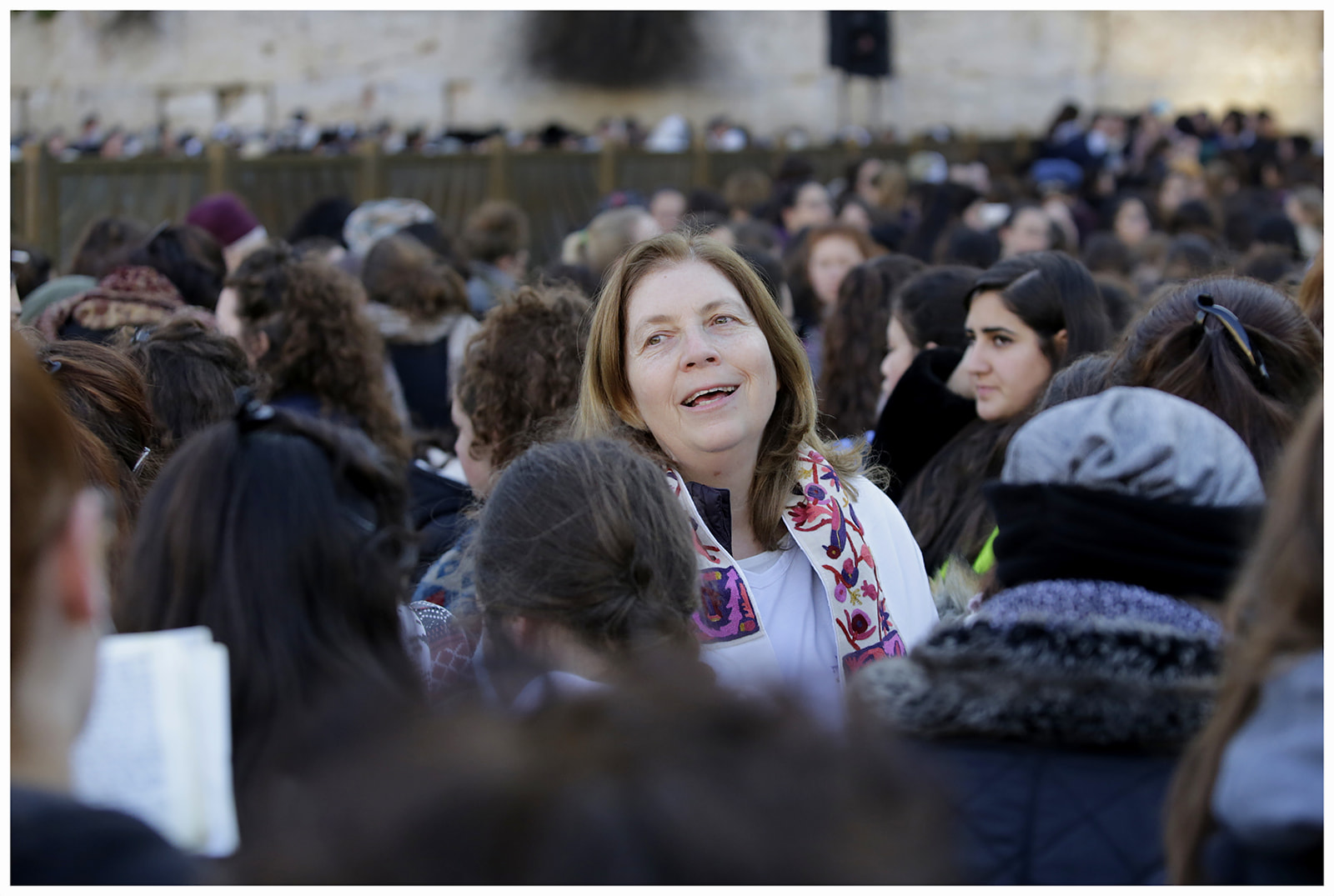JERUSALEM – “Perhaps for this moment you have reached the kingdom,” Mordechai instructs Queen Esther auspiciously (Esther 4:14). At critical points of climax, those in the heart of the battle may not even recognize the magnitude of the moment. Like the heroine Esther, Women of the Wall have heeded the call to action, understanding that our voice is indeed the vital force for needed change.
On Women of the Wall’s 30th anniversary, Rosh Hodesh Adar II and International Women’s Day, we were met with overwhelming crowds of ultra-Orthodox protestors, many of them schoolchildren brought as a “field trip.” The organized intimidation and harassment were the products of weeks of incitement, illustrated by posters calling religious Jews to action against liberal Jews who they perceive as a threat to the sanctity of the Kotel. Police looked on without interfering; women departed with bruises and aching muscles. While we anticipated dissent, the level of crowding and the ferocity of threats charged at us – coupled with the police’s total abandonment – made remaining in the women’s section impossible.
The decision to relocate to Ezrat Israel (Robinson’s Arch) was made with much deliberation and heavy hearts. We understood that this moment of relative relief was still a statement of resignation; as we struggled to leave the main plaza, suffocated by crowds of jeering bullies, we were marked as second-class citizens. The thousands of students bussed by their religious schools looked on and chuckled, feeling defiant and victorious.
Even once we had reached the more spacious Ezrat Israel, free of the vicious tormentors, we were still in the backyard, the “back of the bus.” We had dodged the unchecked furies of those determined to keep Jewish life in Israel a monolith; but those same zealous actors loomed in waiting, just several feet outside the entrance-way to the Robinson’s Arch plaza, ready to pounce again with curses and threats as we made our exit later. Our arrival to safety was but a temporary respite.
This transformation – from a service marked by intense violence to one punctuated by confident singing and dancing – was more bitter than sweet. Women who had been heaving panicked sobs just moments earlier radiated calm during the Torah service. Nevertheless, to reduce the morning’s events to a “happy ending” version would be an injustice.
We relocated to Ezrat Israel because we had no other choice; the archaeological site, with no access to contact with the Western Wall’s stones, provided a shelter for us. We were safe, separate – but not equal.
The Kotel Agreement was never merely about a physical site; it was a commitment to equal recognition of the multitude of expressions in Israeli and worldwide Jewish life. The Agreement ensured meaningful renovations to the Robinson’s Arch plaza, making the site fully accessible, dignified, and inviting. Further, this plan, ultimately left by Prime Minister Benjamin Netanyahu to expire fruitlessly, guaranteed that the management of the site would be representative of the liberal Jewish movements the place would serve, including advocates from Women of the Wall. The dissolution of this agreement demonstrates a lack of commitment to all Jews in Israel; this is why Women of the Wall’s resilient and unwavering work is needed.
We know that it is indeed “for this moment that we have reached the kingdom”; after years of our pushing just to be recognized, the Israeli government has been forced to reckon with the diversity of voices in Jewish life, and no serious discussion of religious freedom at the Western Wall can take place without Women of the Wall’s presence at the table.
One day, when we write the “Megillah of Women of the Wall,” we will surely remember our 30th anniversary as a “v’nahafoch hu” (“and it flipped”) moment, when both the gravity of the organized violence against us, and the unwavering tenacity of our movement for equality will be revealed in the brilliant clarity of retrospect.
In the spirit of Esther’s bold recognition of her impact on the chain of Jewish history, Women of the Wall is taking hold of fate and continuing to fight for a more inclusive future. We have arrived at the “kingdom,” and we will not be silenced.
Photo Credit: Hila Shiloni

